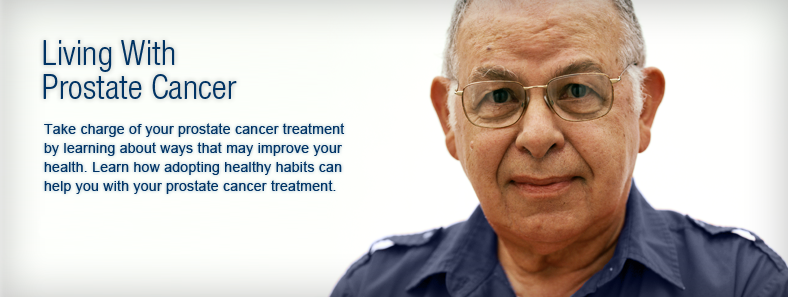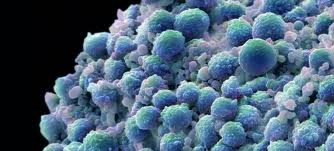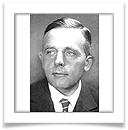Hyperbaric Oxygen
Prostate Cancer
As 95% of all prostate cancers are slow-growing, an opportunity exists to prevent further cancer growth and progression. Hyperbaric oxygen therapy (HBOT) has been shown in laboratory studies to slow down the growth rate of prostate cancer cells, including those cancer cells with high metastatic potential. By disrupting the prostate cancer cell cycle, HBOT also increases the sensitivity of prostate cancer cells to various chemotherapeutic agents, and may potentiate chemotherapeutic agents that cause damage to the cancer cell DNA. For advanced or aggressive prostate cancer necessitating radiation therapy, Hyperbaric oxygen therapy is effective in ameliorating complications of radiation therapy, such as hemorrhagic cystitis (blood in the urine due to damage of the bladder wall) and proctitis (pain, bleeding and ulceration of the rectal wall).

Source: www.prostate.com
Facts:
Prostate cancer usually affects men over age 50, and often does not cause any symptom during the early stages of the disease. As the tumor grows and infiltrates the surrounding structures, symptoms such as increased frequency of urination (especially at night), difficulty in starting or stopping urine flow, decreased urine stream, pain or burning during urination or ejaculation, visible blood in the urine or semen, and a sense of incomplete bladder emptying arise.
 Statistics:
Statistics:
Prostate cancer is the most common cancer in Canadian men, accounting for an estimated 24% of all new cancer cases in men each year (2014 Canadian Cancer Statistics publication). It is the third leading cause of cancer death in Canadian men, accounting for 10% of all cancer deaths in 2014. It is estimated that one in eight Canadian men will develop prostate cancer during his lifetime, and that one in 28 men with prostate cancer will die from it.
Benefits of hyperbaric oxygen therapy (HBO) in Prostate Cancer
In prostate cancer cells:
- Increases the number of stem cells circulating in the body
- Creates an oxygen-rich environment which is unfavorable to the growth and propagation of prostate cancer cells
- Does not promote the growth of new blood vessels that may feed the tumor
- Inhibits cell division causing accumulation of cells in the resting phase of the cell cycle
For inflammation:
- Decreases pain and swelling by improving circulation
- Increases the pain threshold
In combination with conventional treatments:
- Hyperbaric oxygen helps with pre-surgical preparation and speeds up post surgical recovery
- Hyperbaric oxygen potentiates cancer chemotherapy agents that cause damage to DNA: Doxorubicin and Taxol
- Improves the success rate of radiation therapy
- Hyperbaric oxygen strengthens body immune system and minimizes radio and chemotherapy-related complications
- Stops bleeding complications in the prostate and in the urinary bladder after being treated with radiotherapy – even when all other measures have failed
- Stops disease progression of radiation-induced proctitis /cystitis
- Improves late morbidity scores 7 years after radiation cystitis/proctitis
Combination of natural non-toxic, anticancer therapies:
- Hyperbaric oxygen and ketogenic diet: show a powerful, synergistic anti-cancer effect in metastatic cancer. Hyperbaric oxygen works to reverse the cancer promoting effects of tumor hypoxia in combination with ketogenic diet which limits the availability of glycolytic substrates to glucose-addicted cancer cells.
Further reading:
- Poff A, Ari C, Seyfried TN, D'Agostino D. The Ketogenic Diet and Hyperbaric Oxygen Therapy Prolong Survival in MIce with Systemic Metastatic Cancer. PLOS ONE.June 5, 2013.[PDF]
- Oliai C, Fisher B, Jani A, Wong M, Poli J, Brady LW, Komarnicky LT. Hyperbaric oxygen therapy for radiation-induced cystitis and proctitis. Int J Radiat Oncol Biol Phys. 2012 Nov 1;84(3):733-40.
- Nakada T, Nakada H, Yoshida Y, Nakashima Y, Banya Y, Fujihara T,Karasawa K. Hyperbaric oxygen therapy for radiation cystitis in patients with prostate cancer: a long-term follow-up study. Urol Int. 2012;89:208-14. Epub 2012 Jul 10.
- Degener S, Strelow H, Pohle A, Lazica DA, Windolf J, Zumbé J, Roth S, Brandt AS.[Hyperbaric oxygen in the treatment of hemorrhagic radiogenic cystitis after prostate cancer].Urologe A. 2012 Dec;51(12):1735-40. doi: 10.1007/s00120-012-3036-x. German.
- Vilar DG, Fadrique GG, Martín IJ, Aguado JM, Perelló CG, Argente VG, Sanz MB, Gómez JG. Hyperbaric oxygen therapy for the management of hemorrhagic radio-induced cystitis. Arch Esp Urol. 2011 Nov;64(9):869-74. English, Spanish.
- Parra C, Gomez R, Marchetti P, Rubio G, Felmer A, Castillo OA.Management of hemorrhagic radiation cystitis with hyperbaric oxygen therapy. Actas Urol Esp. 2011 Mar;35(3):175-9. Epub 2011 Feb 18.
- Nakabayashi M, Beard C, Kelly SM, Carr-Locke, DL, Oh, WK.. Treatment of a radiation-induced rectal ulcer with hyperbaric oxygen therapy in a man with prostate cancer. Urol Oncol. 2006 Nov-Dec;24(6):503-8.
- Dall'Era MA, Hampson, NB, Hsi RA, Madsen B, Corman JM. Hyperbaric oxygen therapy for radiation induced proctopathy in men treated for prostate cancer. J Urol. 2006 Jul;176(1):87-90.[PDF]
- Chong KT, Hampson NB, Bostwick DG, Vessella RL, Corman JM.Hyperbaric oxygen does not accelerate latent in vivo prostate cancer: implications for the treatment of radiation-induced haemorrhagic cystitis. BJU Int. 2004 Dec;94(9):1275-8.
- Chong KT, HampsonNB, Corman JM.Early hyperbaric oxygen therapy improves outcome for radiation-induced hemorrhagic cystitis. Urology. 2005 Apr;65(4):649-53
- Corman JM, McClure D, Pritchett R, Kozlowski P, Hampson, NB. Treatment of radiation induced hemorrhagic cystitis with hyperbaric oxygen. J Urol. 2003 Jun;169(6):2200-2.
- Mayer R, Klemen H, Quehenberger F, Sankin O, Mayer E, Hackl A, Smolle-Juettner FM. Hyperbaric oxygen–an effective tool to treat radiation morbidity in prostate cancer. Radiother Oncol. 2001 Nov;61(2):151-6.
- Del Pizzo JJ, Chew BH, Jacobs SC, Skalar GN.Treatment of radiation induced hemorrhagic cystitis with hyperbaric oxygen: long-term followup. J Urol. 1998; 160: 731-3.
- Kalns JE, Peipmeier JH. Exposure to hyperbaric oxygen induces cell cycle perturbation in prostate cancer cells. In Vitro Cell Dev Biol Anim. 1999 Feb;35(2):98-101.
- Kalns J, Krock L, Piepmeier E. The effect of hyperbaric oxygen on growth and chemosensitivity of metastatic prostate cancer. Anticancer Res. 1998 Jan-Feb;18(1A):363-7
Back to:
MEDICAL DIRECTORY
/
CANCER
A M., North Vancouver, BC
"...I found the sessions to be very friendly and efficient. I would highly recommend this treatment."
 Otto Warburg, Nobel Prize Laureate
Otto Warburg, Nobel Prize Laureate
"All normal cells have an absolute requirement for oxygen, but cancer cells can live without oxygen - a rule without exception. Deprive a cell 35% of its oxygen for 48 hours and it may become cancerous."
Otto Warburg, German physiologist receiving Nobel Prize in Medicine in 1931 for his discovery that the root cause of cancer is oxygen deficiency, and proving that cancer cells are anaerobic (do not breathe oxygen) and cannot survive in the presence of high levels of oxygen.
 Cancer Recovery
Cancer Recovery